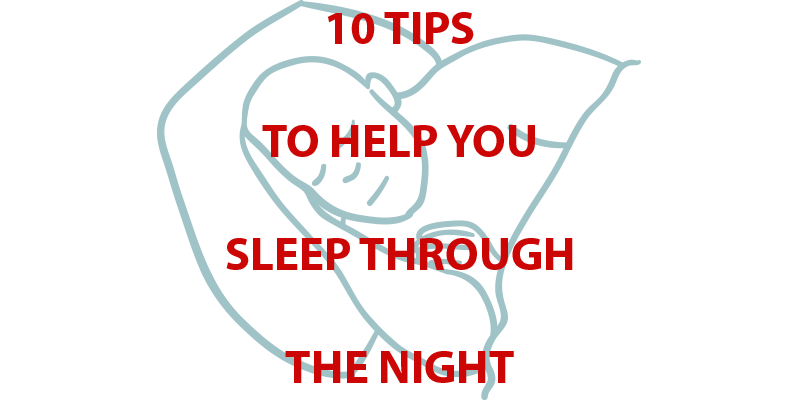


Everyone knows that 8 hours a night is the ideal sleep amount. While that commonly accepted notion has recently been in contention amongst experts, it is not the topic of this post. Regardless of the amount, the fact still remains … Sleep is important! This post will offer 10 tips to think about that will help you sleep through the night. Those are caffeine, alcohol, devices, exercise, scheduling, temperature, noise, sleep position, your blanket and pillows.
It has been written that caffeine can remain active in your system for 6-12 hours after consumption. In addition, caffeine has also been known to inhibit deep sleep. Perhaps that coffee that you had at noon is the reason you can’t get to or stay asleep at night.
Don’t use alcohol to fall asleep. While alcohol can make you drowsy enough to pass out, the quality of your sleep will be poor. You won’t be able get into deep REM sleep and you’ll probably wake up and fall asleep many times throughout the evening.
If you are watching videos on your phone or working on your laptop right before trying to sleep, the blue light from your device screen may be preventing you from falling asleep as quick as you would like. The blue light from the screens reduces melatonin, an essential hormone for sleep induction. In addition, blue lights also trick the brain into thinking that the sun is coming up. Our biology is hardwired, from years of evolution, to wakeup as the sun comes up and fall asleep as it falls. If you must use a device to work on before bed, use the night-mode setting. You could also use blue light glasses to reduce the glare.
The benefits of regular exercise are innumerable. Being a great method of stress release and the natural high from endorphins emitted during vigorous activity are just a couple. In addition, burning off any excess energy can also help you get to bed at night. Just make sure to exercise early in the day; as to not get too excited before bedtime.
Exercise is also a great way to enjoy a Flow State. To get more information on Flow State, read The 3 Triggers That Induce Flow State.
The body and mind operate on what biologist call circadian rhythms. That is, your body will automatically get accustomed to sleeping and waking at certain times. By default, our waking and sleeping biology is aligned with the rising & falling of the sun. So by sleeping in on the weekend, you are actually throwing your rhythm out of wack. This may be a reason you are up on some random weeknight when you want to be sleeping.
According to the National Sleep Foundation, the ideal room temperature to induce sleep is somewhere between 60-67 degrees Fahrenheit. What temperature are you sleeping at?
Use a sound machine to create light noise when sleeping. It will drown out the sharp random noises that wake you up in the middle of the night, like a closing door or a toilet flush. Nothing is worst than being awakened by a random sound and not being able to go back to sleep. You could also use an electric fan to create constant light noise.
Sleep in the best position. That is, lying flat on your back is the best position for sleep. While on your back, none of the breathing pathways are blocked and your body is in as aligned a position as possible. Sleeping on the side is the second best while the fetal position is better than the worst, which is flat on your stomach. Some say sleeping on your stomach can lead to back and neck pain. Warning! If you are a heavy snorer, sleeping on you back will make you even more noisy but at least you’ll sleep better.
If you are waking up sore in your neck or back, your pillow may be the culprit. Your pillow should place your neck, back and head in the most neutral position, to allow for a comfortable sleep. In addition, you may need a different pillow configuration based on your preferred sleeping position. Lastly, like most things, pillows lose their structure over time and need to be replaced periodically.
A weighted blanket can act as deep touch therapy, reducing stress and anxiety. The extra weight grounds you and can feel like a safe hug relaxing your nervous system. The blanket should weigh about 10% of your body weight. There have been studies that show a positive effect in children with autism.
There are many considerations to insure that you get a good night’s rest. Everything from the substances you take, to your sleeping position, to your sleeping environment must be examined.
Now that you can sleep soundly through the night, wake up early and use a morning routine to get supercharged for the day. To get more on designing a great morning routine, read 7 Parts to Build Your Best Morning Routine. Either way, Sweet Dreams!
 A checkmate pattern is a specific identifiable positioning of pieces...
A checkmate pattern is a specific identifiable positioning of pieces...
 Chess is a game with many approaches to improve. Some...
Chess is a game with many approaches to improve. Some...